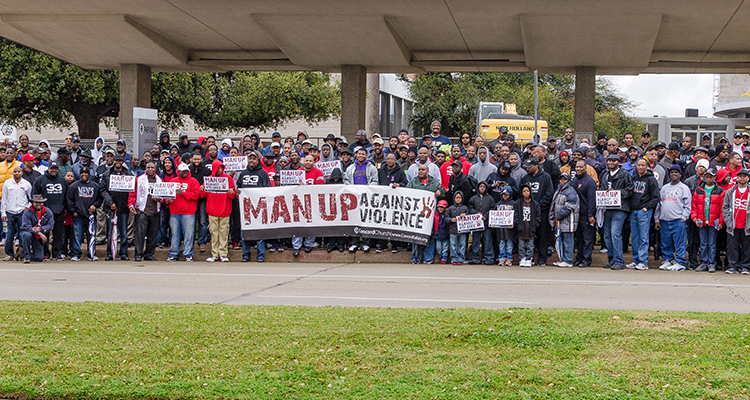Expert Help in Exploring Various Sociology Research Paper Topics
Diversity of Sociology Research Paper Topics
The sample presented below is written on one of the sociology research paper topics and can be used for research purpose only. One should remember that it is not a customized paper. In case you need an original academic work, feel free to use our writing services.
The research paper published below tends to explore different issues that have affected societal development.
Sociology Topics: the Roots
Considerable diversity of sociology topics can be easily explained by the historical development of the society and the modifications it has been subjected to. Such a notion as a social change has been extensively explored by such sociologists as Weber, Spencer, Comte and others. Archaeologists and anthropologists have been also interested in examining social transformations. They have developed a number of societal evolutionary concepts in order to find out how people have been evolving over the years.
Sociology Paper Topics Emerging from the Concepts of Social Development
Social evolution, the way a society changes, can be called another source of sociology paper topics. The second half of the 19th century was the period of formulating and analyzing individual evolutionary concepts relating to anthropology and sociology. The well-known scientists of that time were Lewis Henry Morgan, Friedrich Engels, Karl Marx and others.
During several decades, the introduced evolutionary concepts were disapproved. However, lately, V. Gordon Childe, Julian Steward and Leslie White started discussing evolutionism again. White and Childe stated that technological progress was the main factor of social development. Steward concentrated on the ecological side of cultural development. The theories formulated by these thinkers were then developed by another sociologists and anthropologists. For example, Elman Service (1970) worked out an evolutionary typology which was based on the sociopolitical structure of a society.
Robert Carneiro (1970) advanced the state evolutionary concept that was focused on the population increase, environmental restriction and warfare. Restricted environment is the one the fertile areas of which are enclosed in natural barriers preventing people going out of those areas, in other words causing social isolation. Population increase together with the shortage of resources causes warfare. If there is enough land resources, people can avoid war by moving to another territory. However, there is a total lack of land in the restricted environments. Solving such a problem is impossible without politics.
Sociologist Gerhard Lenski (1966) advanced the evolutionary concept of social stratification. As Lenski stated, rapid technological progress and an increase in economic productivity were the main factors causing the very stratification. As economic productivity rises, the more complicated stratification systems become.
One more evolutionary concept was developed by sociologist Talcott Parsons (1966, 1971). His theory was focused on the development of ideas and social establishments. By introducing his theory, he wanted to explain how a society adapts to certain modification and at the same time avoids disorganization.
Marvin Harris (1977) developed one of the most essential evolution concepts. He found out that a society tended to decrease their environments due to the population increase. With the growth of population, the amount of resources reduces considerably which leads to negative consequences. In order to boost the economy and avoid poverty, people had to support technological development. As a result, gardening and hunting were replaced by farming. It is necessary to admit that the very technological progress causes both population growth and damage to the environment which means that new technological alterations are required.
Stephen Sanderson continued developing the ideas presented by Harris and, as a result, introduced a theory called evolutionary materialism (it is a widespread subject among sociology topics for research). His theory highlights distinctive and similar features between social and biological evolution.
Sociology Research Topics: the Stages of Social Evolution Development
When writing papers on sociology research topics, students often need to find out what the correlation between different stages of social evolution development are and how they influence social progress in general. Before producing a work on one of such subjects, it is necessary to know that almost all scientists dealing with social evolution agree that Neolithic Revolution which brought in animal domestication was the first vital social modification. The development of agricultural sector resulted in densely populated areas. The communities inhabiting the areas paid huge attention to human and civil rights and were against personality clashes and discrimination and prejudice (Sanderson 1999b:20–52).
About 5000 years ago, some societies started moving in the direction of civilization. The emergence of states and shift to civilization was a specific evolutionary modification noticed across the globe (Sanderson 1999b:53–95).
From the point the first states appeared, it took thousands of years before a completely new form of social organization developed. Many sociologists state that the mentioned form was implemented by the Industrial Revolution of the 18th century. Still, some researchers think that such a mode of social organization was introduced in the 16 century (Wallerstein 1974a, 1974b). The said modification is regarded as a transition to capitalist model of world economy.
Today, one cannot name only one theory or study and say it is the most efficient of all presented by sociologists. All concepts contribute to the investigation of social transformations.
Historical Sociology and Evolutionary Concepts
The 1970s can be called a period of “comparative and historical revolution” which stimulated considerable historical transformations. A lot of sociologists did not accept the presented evolutionary concepts of social transformations. Barrington Moore and S. N. Eisenstadt were the first historical sociologists. They created many influential works highlighting important and interesting sociology topics.
Sociologist Randall Collins (1986, 1995) defined a specific kind of society called the agrarian coercive one. The peculiarity of such society is a deep desire to broaden its territory keeping total control and strong discipline of its inhabitants. Nevertheless, such society becomes inefficient once its territory broadens considerably.
Immanuel Wallerstein discovered a completely new social notion called world-systems analysis (WSA). Note that WSA is rather a captivating sociology topic. According to it, societies are not considered independent unities. They are regarded as those built in large societal frames i.e. world systems. Scientists interpret the shift from one kind of a world system to another in different ways. However, all of them connect such a transition with such notions as population increase, environmental ruination, sustainable energy, etc.
Rebellions and State Collapse
Revolutions, social collapses are among popular sociology research topics for college students. In order to know exactly how to create a good college work, e.g. thesis, term paper or any other on a stunning sociology essay topic, one should know the following facts:
Revolution and state collapse are considered an essential mode of social modifications happening recently. There are many concepts relating to the notion of revolution (Sanderson 2005a:61–106). The most popular are those developed by James Davies and Ted Robert Gurr.
According to Goldstone (1991), one wave of such phenomenon as state collapse appeared in the mid-seventeenth century and the other one in the mid-nineteenth century. The concept he developed illustrates how population increase results in economic crunch and social dissatisfaction. Due to population increase, it becomes harder to get the desirable job position which can cause corruption. Moreover, population increase cuts salaries and raises prices which causes urban riots during which there are many cases of police brutality (police actions may sometimes even disable people). Such factors lead to state collapse.
Social Movements
Note that this is a great subject among the variety of good sociology research topics!
What is a social movement? It is an operation organized by people who want to attain some political objectives. Social movements, which are considered a modern political occurrence, began in the late 18th century. However, it was not a usual social activity until 1830s (Tilly 2004).
The time period when there were many social movements was the 19th century. Till the end of the century, many people started participating in social movements with the aim of presenting their demands. During that period, due to the spread of political rights, there was a considerable drop in violence, terrorism and crime level. The number of social movements increased in the 20th century. In 1968, French citizens decided to defeat the political regime established by Charles de Gaulle. Furthermore, in the USA, there were demonstrations against the Vietnam War. There were intercultural fights about racism and segregation (Tilly 2004). About that period of time, such notion as “skinhead” appeared. People belonging to such subculture had rather deviant behavior and their own beliefs.
World Systems and Establishments of Modernity
The state of the world economy greatly depends on the interstate system. There were created many modern social establishments during the past two centuries. There was also a transition from agricultural societies to the urban ones. Additionally, mass education developed greatly. Democracy played a crucial role in the creation of prosperous societies (Rueschemeyer, Stephens, and Stephens 1992; Sanderson 2004). Such positive transformations meant the end to rape, prostitution, social deviance and other terrible issues. Being aware of the abovementioned data, it will be easier for you to explore your societal problems research paper topic.
Other significant modifications relating to modernity are connected with genders, family and intimate relationship. The role and place of women in the society has changed completely. The social movement called feminism gained popularity. It was stated that no objectification of woman was possible. Women started holding dominant positions in different areas (Browne 2002, 2005).
The above-mentioned modifications had considerable impact on family. The divorce rate increased enormously. Marriage breakup has certainly affected children, especially autistic children. There were many single parent families guided by women mainly. According to Tiger, family lost its primary role as a reproductive entity (Tiger 1999). Since many people married for love, they expected a lot from each other and, as a result, a lot of families were ruined (Collins 1985). As Coontz (1992, 2005) states, love has ruined a traditional family. Today, we can often hear such a word combination as gay and lesbian parenting. Additionally, the same-sex marriage is not an unusual thing anymore. Polygamy, bisexuality, homosexuality, and transsexual surgery are the common notions which people come across in everyday life. Due to such state of things, the question of adoption arose.
Economic Progress and Globalization
Lately, there have been many talks about globalization. The role of globalization in the life of people, especially those living in developing countries, has been exhaustively discussed (e.g., Singer 2002; Stiglitz 2003). On the one hand, people from developing countries started living a better life. The rates of child death decreased which means health care systems were improved (Lomborg 2001; Singer 2002). On the other hand, it is still considered globalization causes inequality. Some people have a poor way of living. Such terrible phenomena as domestic abuse, pornography, suicide, cocaine addiction, chronic alcoholism are unfortunately a part of many people’s lives.
Postmodernity
Giddens (2002) states that we are living in an uncontrolled world that alters very fast. According to Harvey (1989), globalization has caused a phenomenon called time-space compression which led to several important consequences. The first is instability of production, fashion, etc. The second is spontaneity (fast food, and other pleasures).
Future Expectations
Historical sociology plays an important role in the development of sociology. Today’s world modifies extremely quickly. Thus, sociologists try to be aware of all modern sociological concepts to foresee what may happen in the future.
Below, there is a list of some sociological topics:
- Social Networks
- Mass Media
- Nationalities and Races
- Sociological Peculiarities of Food
- Youth Gangs
- Gender Stereotypes
- Social Revolutions
- Religion in a Society
- Conflicts between Representatives of Different Classes
- Consumerism
No matter the perspective sociological topic you need to write a paper on, address us. Our experts are skilled enough to cover any macrosociology research paper topic. They can properly explore such tricky subjects as euthanasia, pedophilia, organ transplantation, death penalty, pornography, teen pregnancy prevention, gun control, etc. Go to our “Samples” page and you will see we can research even the most thought-provoking sociology essay topic well.





